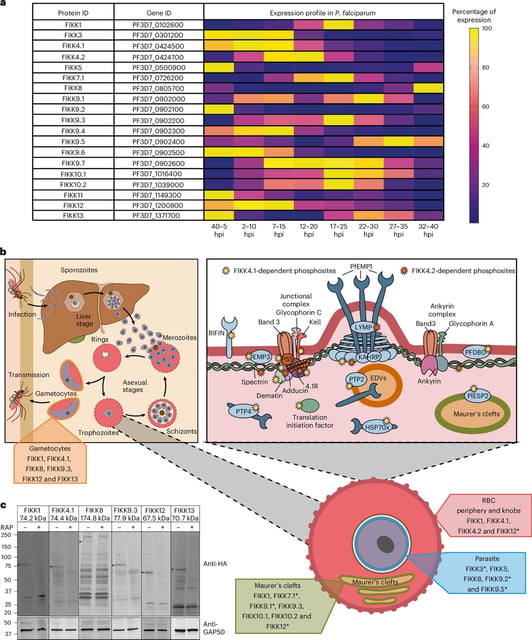Overview
- Scientists from the Francis Crick Institute and GIMM have uncovered the evolutionary role of FIKK kinases, a protein family essential for malaria parasite survival.
- Analysis of over 2,000 genomes revealed strong conservation in 18 of 21 FIKK kinase genes, underscoring their critical role in infection and host adaptation.
- One FIKK kinase was found to phosphorylate tyrosine, a unique capability among malaria parasites, enabling manipulation of host cell signaling pathways.
- High-throughput screening with GlaxoSmithKline identified three inhibitory compounds, with two showing broad-spectrum effectiveness against FIKK kinases in vitro.
- Researchers are now optimizing these compounds for safety and efficacy, aiming to develop next-generation antimalarials that combat drug resistance.
